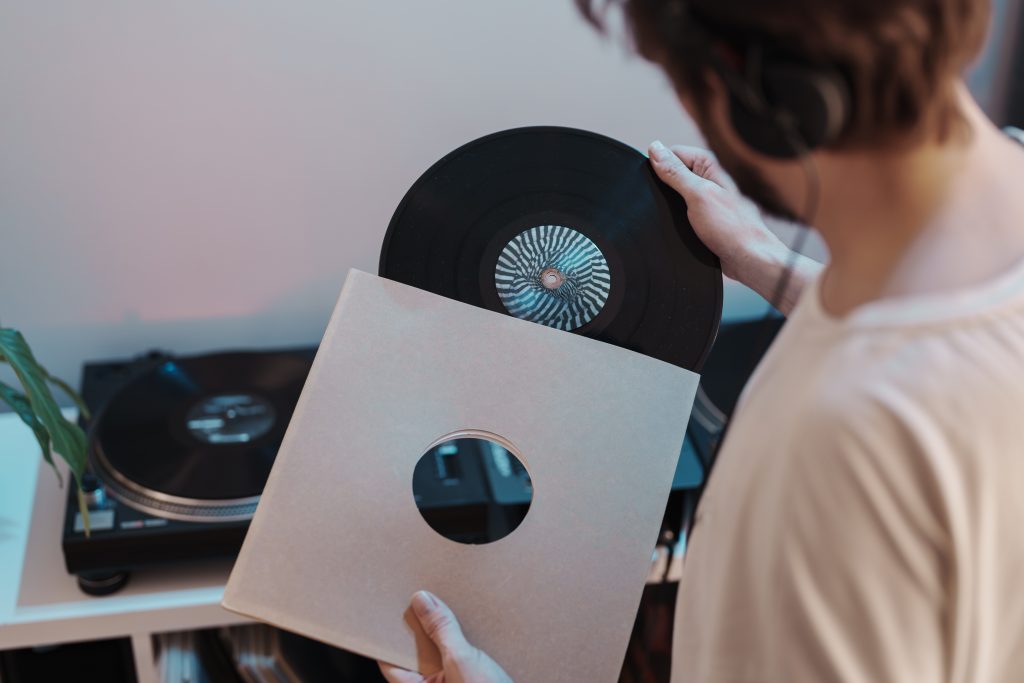Collecting vinyl records, a hobby that was extremely popular throughout most of the 20th century, has experienced a recent resurgence. Music enthusiasts and antique collectors alike are rediscovering the timeless appeal of these throwbacks to a different era of sound.
Not all records, however, are created equal. The majority are only worth a few dollars and are more valuable for their nostalgia factor. Some vinyl records, though, can fetch hundreds or even thousands of dollars.
If you want to learn how to tell the difference, the info below will be very helpful. It’s the top eight tips for identifying valuable records and keeping them in mint condition, brought to you by the storage specialists at NSA Storage. Read on to discover record collecting tips and create a collection that will be the envy of your vinyl-loving peers!
Top 8 Tips to Determine if a Vinyl Record is Valuable
Building a valuable record collection means knowing what makes one record more valuable than another. There are several factors that influence a record’s value, from the artists to rarity, condition, and several more. We’ve listed the best of them, below:
- Condition is Everything– Mint condition records are much more valuable than records with scratches, warps, or other defects. You should thoroughly inspect the vinyl’s surface for damage. Also, be sure to give the record’s sleeve a good look for signs of wear and tear such as scratches, creases, stains, rubs, or tears.
- Rare is Rare- While condition is everything, it’s less of a factor for extremely rare records. If you find something ultra-rare but it’s a bit beaten up, consider buying it anyway.
- Look for a First Pressing– First pressings are generally more valuable than later record reissues, or re-pressings. Research the matrix number etched into the record’s “dead wax” (the center of the album) to identify the pressing.
- Check if It’s a Limited Edition– Limited editions, like first pressings, are usually more valuable.
- Look for Foreign Pressings– Foreign pressings of an album can increase its value. The Beatles released several albums in England but not in the United States. For example, the Beatles “Rubber Soul” had 14 songs in the UK but only 12 on the US album. That makes the UK version more valuable, but makes the US version unique.
- Is (or was) the Artist Popular?– There’s no doubt that one of the biggest factors in terms of value is the popularity of the artist who made the record. Albums by iconic artists like The Beatles, Elvis, Aretha Franklin, Sinatra and others are generally more valuable than “one hit wonders”.
- Look for Autographs– Autographed albums, depending on the artist, can often be more valuable.
- Does the Record have any Distinctive Features– Misprints, special artwork, double albums and other distinctive features often make a record worth more money.
How To Keep Your Records in Pristine Condition
Never Stack Boxes of Vinyl Records on Top of Each Other
A mistake many record collectors make is stacking boxes of records on top of each other. Yes, it takes up less space, but stacking is very damaging to the records inside. Stacking can lead to the following, value-reducing issues:
- Warping: The heavy weight of stacked records can cause the vinyl to bend and warp. That’s never good for records of any value.
- Cover Damage: The weight can also damage album covers, leading to creases and splits. This, as you might’ve guessed, will also lower an album’s value.
Clean Your Albums Regularly
Records accumulate dust and dirt over time no matter if you play them often or not. All that dust and dirt can harm the album and ding its value. That’s why keeping your albums clean is critical. To do that easily and quickly, follow the cleaning tips below;
- Use a clean, anti-static record cleaning brush to remove dust and grime each time you play an album.
- A professional record cleaning machine is recommended if you have a large collection of record albums.
- Don’t use water to clean your records. Water seeps into the grooves and can damage your albums. It’s best to use cleaning products specifically made for cleaning vinyl.
Catalog and Organize Your Collection
Keeping track of your valuable records can become challenging as your collection grows. Vinyl experts recommend cataloging and organizing your collection to ensure you know what you own and its condition. The tips below will help;
- Use a digital app or spreadsheet to record each album’s title, artist, release date, condition, and value: Discogs, VinylWall, MusicBuddy, CLZ Music, etc.
- Organize your records by genre, artist, or alphabetically. This helps maintain the quality of your records by reducing the need to shuffle through them all the time.
- Consider keeping your most valuable vinyl separate from the rest of your collection to avoid accidental damage or loss.
Know When to Sell or Trade Your Vinyl Records
Building a vinyl record collection is exciting, no doubt. However, there may come a time when you decide to sell or trade your records. For example, if you’ve accumulated a lot and need to free up space, or you just want a little cash for your collection. Here are some signs it may be time to sell some of your records:
- If a record has significantly increased in value, it might be a good time to sell it.
- If you have multiple copies of an album, selling the extra copies can fund the purchase of new ones.
- Pay attention to trends in the record market. If an album is suddenly in high demand, it might be the perfect time to sell.
When selling your valuable records, research prices thoroughly to ensure you get a fair deal. Sites like Discogs and VinylBuddy can provide valuable insight into current market prices.
How to Store Your Vinyl Records Correctly to Maintain Their Value
Now you know how to identify a valuable record in your collection, and how to keep them in pristine condition. The next step is to preserve your collection’s value when it’s stored. The tips below will help you keep your records in pristine condition while they’re stored.
- Always Store Your Records Vertically: Always store your records like books on a shelf, to distribute their weight evenly. Storing records flat can lead to warping, which can permanently damage your record and destroy its value.
- Use the Right Sleeves for Extra Protection: Protect both the vinyl and the record’s cover by using plastic outer sleeves and anti-static inner sleeves. These sleeves protect your records from dust, dirt, grime, gunk, and fingerprints.
- Keep Records Away from Direct Sunlight: Direct sunlight can cause the record cover to fade, which will lower its value. Always be sure to store your records in a cool, dark-ish place.
- Handle Your Records with Care: Always handle your records by the edges and avoid touching the playing surface. Oils from your skin can leave marks and attract dirt. Some serious record collectors only touch their records when they’re wearing clean, white gloves!
- Store Your Records in a Climate-Controlled Storage Unit: If you’re storing your records in a storage unit, we recommend a climate-controlled storage unit. These specialized units keep the temperature stable throughout the year. That means your records will never be exposed to extreme heat or cold.
Store Your Collection with NSA Storage
There’s no denying that collecting vinyl records can be rewarding both emotionally and financially. As we’ve seen, collecting valuable records requires attention to details like age, condition, artist and so forth.
It’s also important to store your records correctly to maintain their value in the long term. To help you do that, NSA Storage offers clean, secure storage units across the United States. We also offer climate controlled storage for record collections that are truly large, valuable, or otherwise unique.
If you need to store your records, or anything else, find a storage unit near you with NSA storage. You can also reserve a storage unit online and it will be ready when you arrive. Until then, we wish you tons of fun and enjoyment collecting valuable vinyl records!





